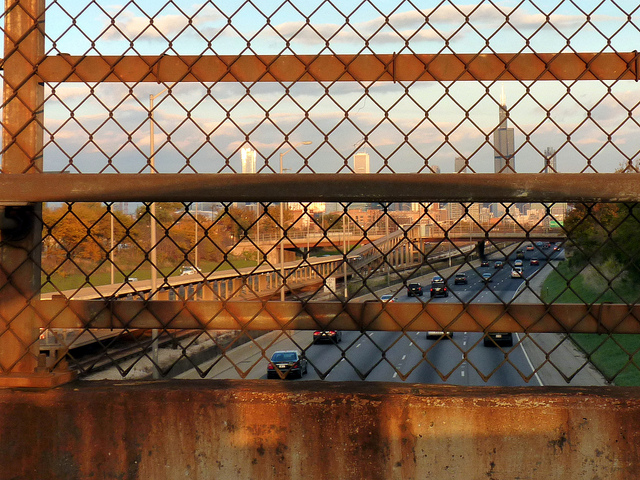Mandatory Sentencing For Drug Crimes Adds To Illinois Prison Woes
By Chuck Sudo in News on Apr 16, 2013 8:20PM
Interstate 290 has been nicknamed the “Heroin Highway” for the ease which drug users can find a score along the West Side neighborhoods the expressway intersects. The Chicago Reporter’s Angela Caputo has a sobering report about how the growing number of stricter drug laws intended to stop the flow of drugs along I-290 are contributing to the state’s overcrowded prison crisis.
Caputo looked at convictions from 13 enhanced drug laws enacted in Illinois between 2000 and 2011 and found 5,761 convictions in Cook County alone, costing Illinois taxpayers an estimated $220 million in incarceration costs. That’s 44 percent of all felony convictions in Cook County that resulting in a prison sentence. Since nearly all of these enhanced drug laws carry mandatory sentencing guidelines, they’ve helped contribute to Illinois’ record prison population, and the people Caputo interviewed for the report say the problem rivals the pension crisis as a buster of Illinois’ budget.
Lawmakers have done little to confront the costs before adopting the laws, the Reporter found. Only three of the 13 drug-related laws enacted in the state Legislature since 2000 came with a financial analysis.Lawmakers need to start confronting the costs of stricter drug laws before passing them, said Kathleen Kane-Willis, the director of Roosevelt University’s Illinois Consortium on Drug Policy. “It’s sort of like the pension obligation,” she said. “You can vote for it and not fund it but, eventually, you’ll have a crisis.”
If there were a financial analysis attached to the bills before, she added, “it might put the brakes on these sorts of laws.”
Using Illinois Department of Corrections’ records to determine the average time drug offenders serve out of their sentences, the Reporter estimated the cost of incarceration for each prison inmate convicted under these enhanced drug laws is $58.50 per day. That number increases to $143 per day at Cook County Jail, where offenders sentenced to less than a year in prison serve out their sentences. It should come as no surprise that the majority of those convicted under these laws are black, or that 47 percent of those convicted lack a high school education.
Yet lawmakers in Springfield continue to push for harsher drug penalties. State Dennis Reboletti (R - Elmhurst) sponsored a law passed last August where anyone convicted of selling three grams of heroin must serve a mandatory prison sentence. The state’s prison problem also comes at a time when budgets for drug treatment and other programs are being slashed across Illinois. Pam Rodriguez, president of Treatment Alternatives for Safe Communities, told Caputo:
“If we really want to address the impact on public safety, we have to realize that we can’t punish our way out of a public health problem,” she said. “Escalating penalties to an already disadvantaged population has the opposite effect.”
